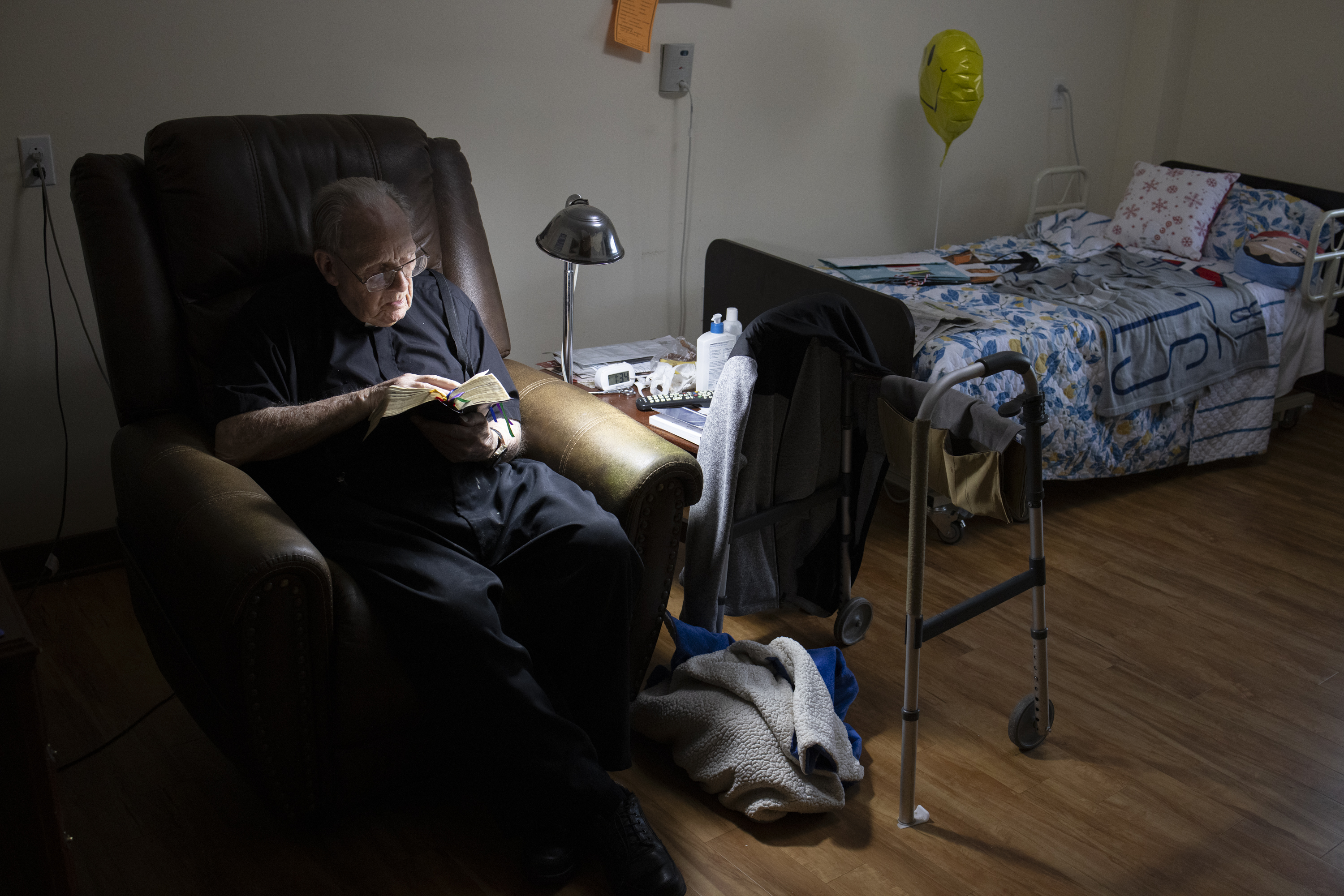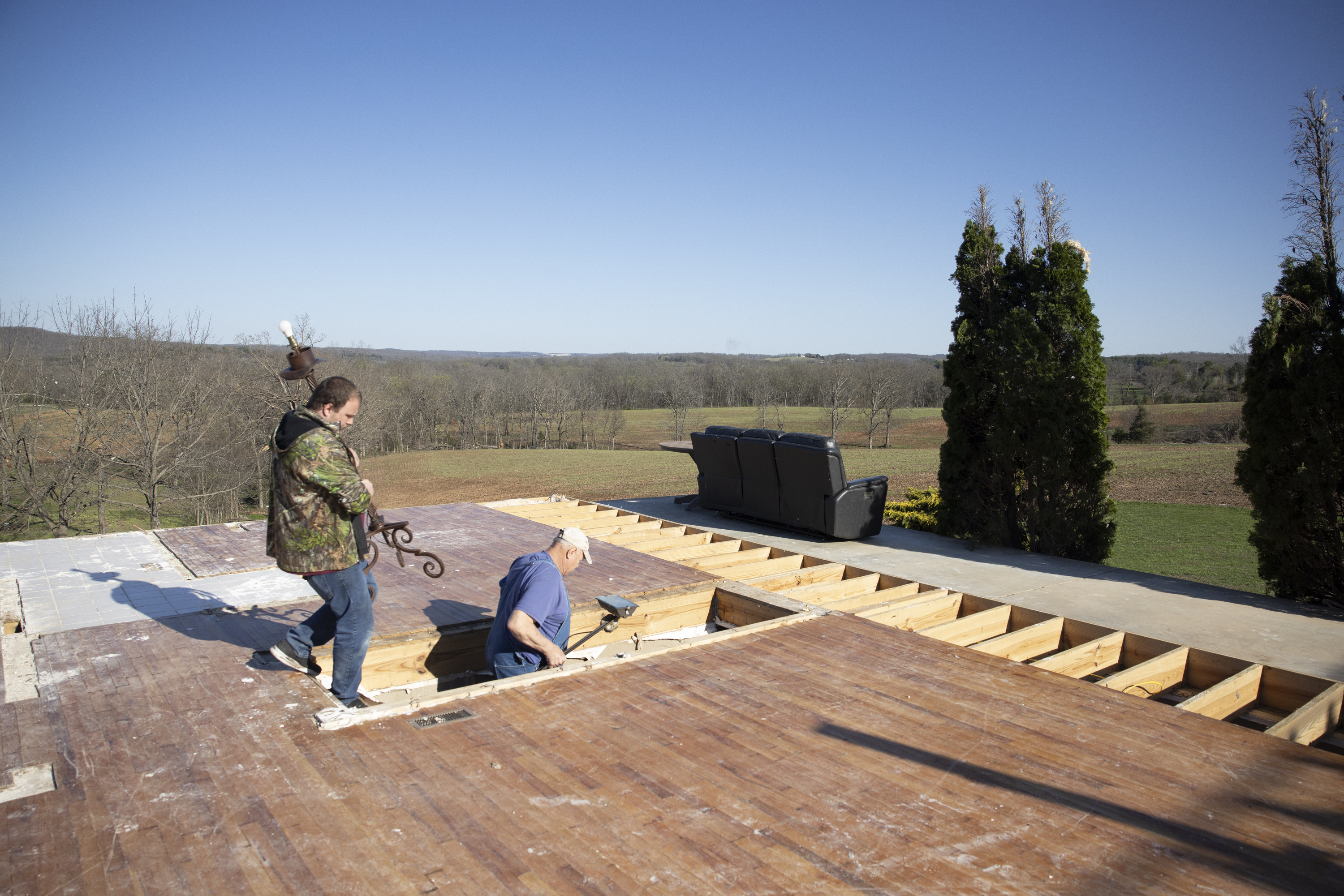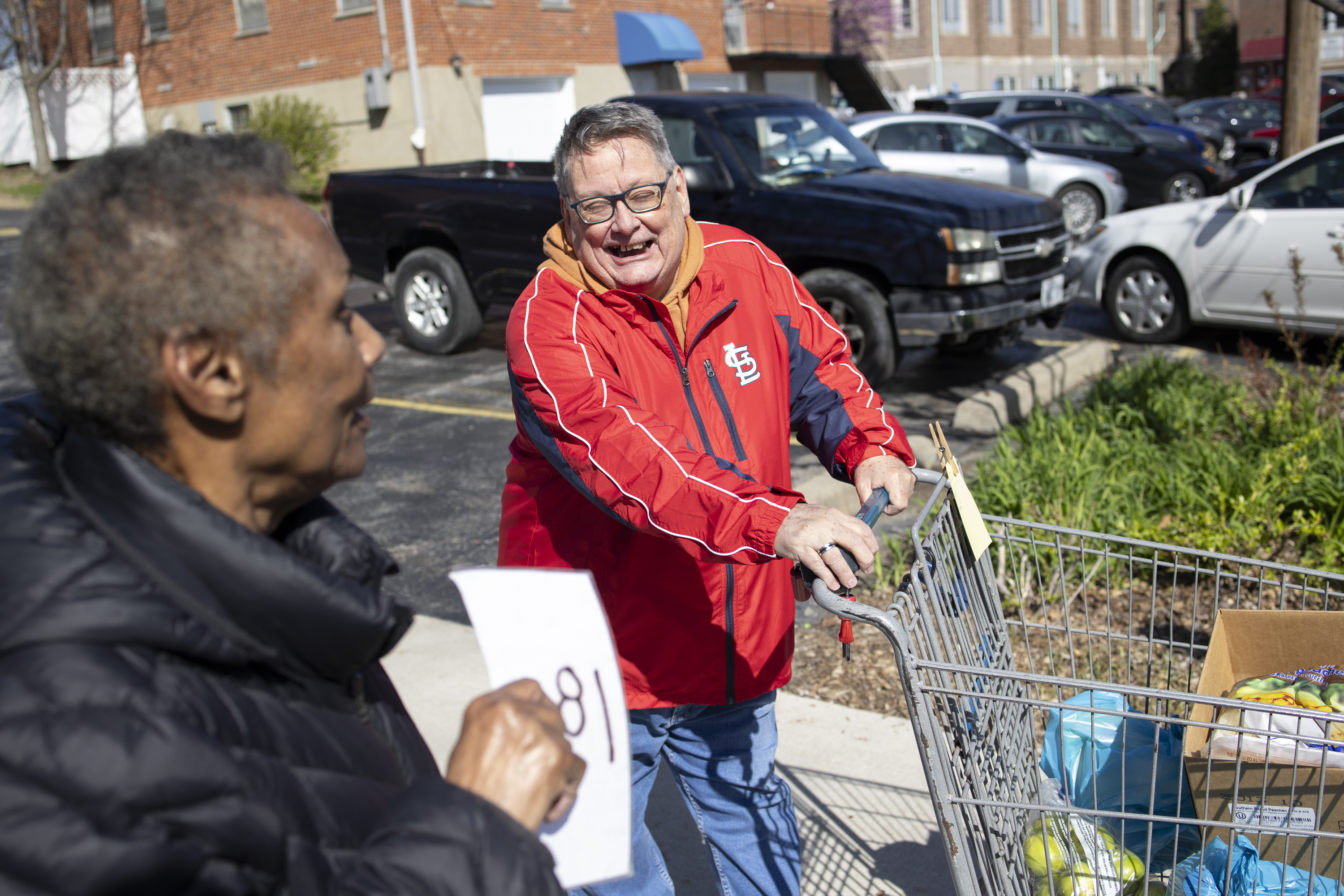Tenth anniversary of Ferguson unrest is a reminder of the Church’s ongoing efforts to address systemic racism, Catholics say
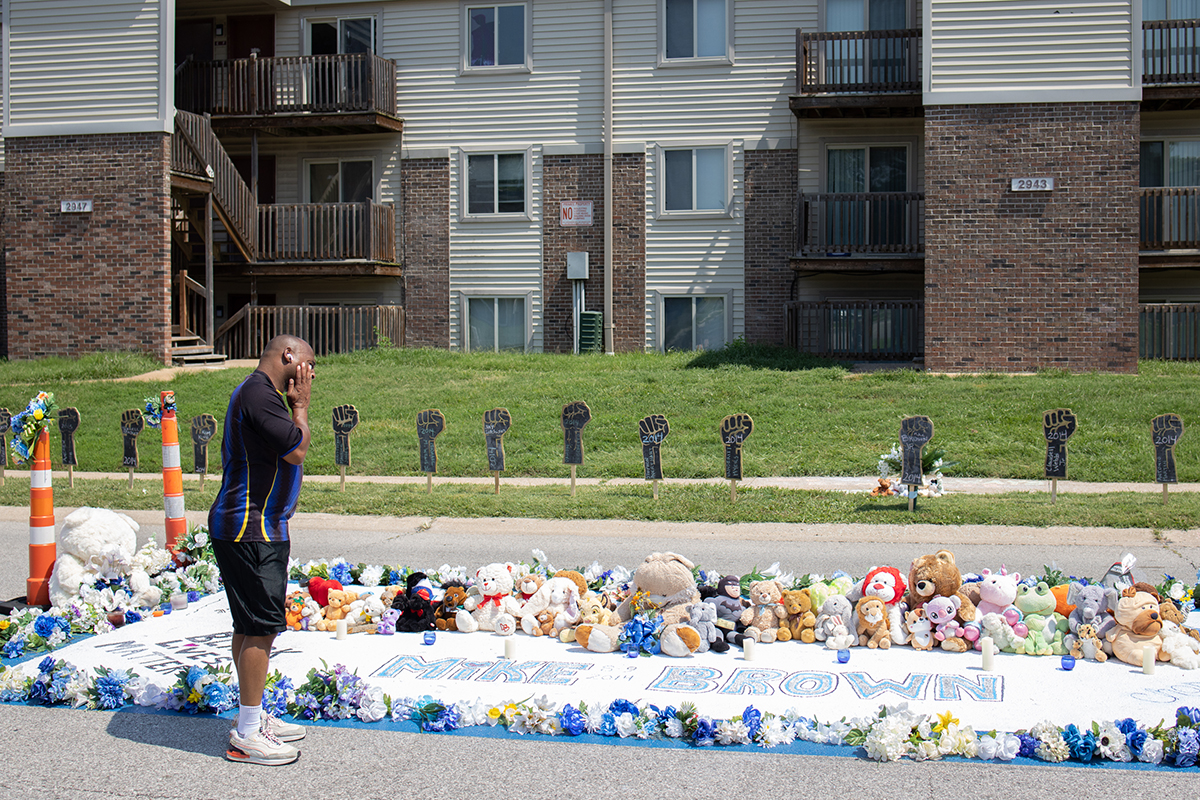
Archdiocese to host prayer breakfast Sept. 7
Like many others, Jeff Schulenberg tuned into news coverage of the riots in Ferguson following the shooting death of Michael Brown in August 2014. He was stunned by what he saw.
He thought to himself, how could something like this happen? Then his wife turned to him and said: “Can you imagine how much they must be hurting to destroy their neighborhood like that?”
“That was like a slap in the face to me,” Schulenberg said. Newly retired from a corporate job, he was discerning what his next steps would be. He wanted to give back to his community in some way. After watching the events unfold in Ferguson over the subsequent months, Schulenberg, a member of Sacred Heart Parish in Valley Park, said his Catholic faith called him to become involved.
He responded to the unrest in Ferguson by diving deeper into the underlying issue of racism and related topics of peace and justice through a Catholic lens. Schulenberg joined a local initiative, Faith and For the Sake of All (now called Faith HEALS), which has closely examined racial disparities affecting the St. Louis region.
Later, he joined with Joyce Jones, director of the archdiocesan Office of Racial Harmony and Black Catholic Ministries, to develop a presentation for parishes and other groups on the sin of racism through the lens of Catholic social teaching and housing segregation. Schulenberg also is active with Sacred Heart’s Peace and Justice Ministry.
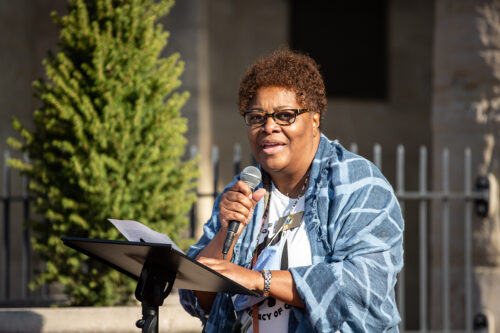
Joyce Jones, director of the archdiocesan Office of Racial Harmony and Black Catholic Ministries, spoke at the Way of the Cross Pilgrimage March 27, 2021, at various locations in the city, including the Basilica of St. Louis, King of France (Old Cathedral).
“There’s a scriptural call to love our neighbor,” he said. “People sometimes see the connection of love for neighbor to faith, but they only look to the next pew. But our neighbor is so much broader than that.”
Ten years after the unrest in Ferguson, Schulenberg and others in the Church continue to seek ways to address systemic racism and related issues. Next year will mark the 10th anniversary of the archdiocesan Peace and Justice Commission, which then-Archbishop Robert J. Carlson established in response to Brown’s death to assist all 11 counties of the archdiocese to “achieve peace and justice for all,” he said.
Under the direction of Marie Kenyon, the commission was formed in 2015 to look at the issues through the lens of the family, which the Church teaches is the basic structure of humanity. Though established in the wake of the shooting of Michael Brown and subsequent violence in Ferguson, the Peace and Justice Commission has dealt with issues beyond Ferguson — social justice issues including immigration, health care access and poverty.
While the commission has had its share of highs and lows over the years, “we are definitely having conversations we would never have had before Michael Brown,” Kenyon said. “It’s given parishes permission to talk about this issue,” adding that she’s seen an increase in the number of parishes engaged in discussions on racism and related topics and involved in service in the community.
In 2019, Jones became the archdiocese’s first director of Racial Harmony (now called the Office of Racial Harmony and Black Catholic Ministries). The office’s role is to raise awareness of the sin of racism in all its forms and to facilitate conversations and build relationships across racial boundaries. The office also serves as a resource to parishes in developing relationships among different ethnicities represented within the archdiocese.
In the past decade, Jones said she believes the “Church has become more vocal about Catholic social teaching. The Church has always done good things as it relates to reaching out (to others), but what Michael Brown and the Ferguson incident did was bring an awareness to more people. The national attention made us look at ourselves and say, what can we do to help? What can we do to make St. Louis better?”
Jones also was part of a team of researchers with the archdiocesan Office of Archives and Records that has been researching the archdiocese’s past involvement with the institution of slavery. A 95-page report was released at the third annual “Forgive Us Our Trespasses” Maafa procession and prayer service held in June.
Archbishop Mitchell T. Rozanski, who expanded the research efforts soon after he arrived in St. Louis in 2020 and has supported the archdiocese’s ongoing anti-racism work, said it “goes right to the heart of the Church’s teaching on the dignity of the human person, that each one of us is a reflection of God in the world and Jesus came to unite us as brothers and sisters. Evils like racism and prejudice do not have a place with people of faith — or, for that matter, anyone.”
The North City Deanery Interracial Relations Committee also was formed after the events in Ferguson to address issues related to race and racism. Its members are largely from the primarily Black Catholic parishes of north St. Louis and have been involved in anti-racism work, including listening sessions, workshops and service to others.
Jones noted that while the Church must acknowledge its involvement in the sin of racism, she said that there are many Catholics who remain committed to keeping social justice issues at the forefront. Moving into the future, she said she hopes that the Church will continue to build on its cohesiveness and remain focused on what’s ahead.
“We need to look at ways that we can focus in a collaborative way to move the needle,” she said. Civil rights leader Dr. Martin Luther King Jr. “was successful because he had a focus, and he didn’t let people pull him away from that.”
>> Prayer Breakfast
To mark the 10th anniversary of the Ferguson unrest, Archbishop Mitchell T. Rozanski will lead a prayer breakfast at 9 a.m. Saturday, Sept. 7, at St. Ferdinand Parish at the St. Martin De Porres campus, 615 Dunn Road in Hazelwood.
To register, visit stlreview.com/3ykP4r7. For more information, contact Joyce Jones at racialharmony@archstl.org or Marie Kenyon at mariekenyon@archstl.org.
Subscribe to Read All St. Louis Review Stories
All readers receive 5 stories to read free per month. After that, readers will need to be logged in.
If you are currently receive the St. Louis Review at your home or office, please send your name and address (and subscriber id if you know it) to subscriptions@stlouisreview.com to get your login information.
If you are not currently a subscriber to the St. Louis Review, please contact subscriptions@stlouisreview.com for information on how to subscribe.


